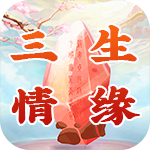1. 20句英語句子成分分析
1.The farm covered thousands of acres.
主語the farm , 謂語covered, 賓語 thousands of acres
2.Don't leave the water running all the time.
否定結構的祈使句
3.The place is worth to be visited.
主語The place,謂語is,動詞不定式to be visited作賓語
4.Only then did I realiza I was wrong.
only在句首的倒裝句
5.The rest of the apple is rotten.
主語The rest of the apple,謂語is,賓語rotten
6.I choose to go to work by bus.
主語I,謂語choose,動詞不定式to go to work by bus作賓語
7.There are plenty of restaurants to choose from.
主語There,謂語are,賓語 plenty of restaurants,動詞不定式to choose from作補語
8.I met her by chance.
主語I,謂語met, 賓語her, 狀語by chance
9.I came across an old photo in the drawer.
主語I, 謂語came across, 賓語an old photo, 地點狀語in the drawer
10.The child tried to catch the teacher's eye.
主語The child,謂語tried, 動詞不定式to catch the teacher's eye作賓語
11.I intend to finish the text today.
主語I, 謂語intend, 動詞不定式to finish the text 作賓語 , 時間狀語today
12.She looks young considering her age.
主語she,謂語looks,狀語young, 狀語considering her age
13.Carry on working while I am away.
祈使句。
14.To see is to belive.
不定式 to see作主語, 謂語is, 不定式 to believe作賓語
15.The worker and writer is from Wuhan.
主語The worker and writer, 謂語is,狀語 from wuhan
16.Something has gone wrong with my watch.
主語Something,謂語has gone,狀語wrong, with my watch狀語
17.They were struggling to get out of the burning car.
主語they,謂語were struggling, 不定式to get out of the burning car作賓語
18.She did want to have what is called mobile phone.
主語she,謂語did want, 后面不定式是賓語,其中what is called mobile phone是賓語從句
19.We think it is necessary to work hard.
主語we,謂語think,后面是賓語從句
20.Seeking friendship is human nature.
動名詞主語Seeking friendship,謂語is,賓語human nature
2. 怎麼分析英語的句子成分和造句,最好有例句
英語:句子成分 什麼叫句子成分呢?句子的組成成分叫句子成分。
在句子中,詞與詞之間有一定的組合關系,按照不同的關系,可以把句子分為不同的組成成分。句子成分由詞或詞組充當。
現代漢語里一般的句子成分有六種,即主語、謂語、賓語、定語、狀語和補語。英語的基本成分有七種:主語(subject)、謂語(predicate)、表語(predicative)、賓語(object)、定語(attribute)、狀語(adverbial) 和補語(complement)。
英語句子的基本結構可以歸納成五種基本句型及其擴大、組合、省略或倒裝。掌握這五種基本句型,是掌握各種英語句子結構的基礎。
英語五種基本句型列式如下:一: S V (主+謂) 二: S V P (主+系+表) 三: S V O (主+謂+賓) 四: S V o O (主+謂+間賓+直賓) 五: S V O C (主+謂+賓+賓補) 基本句型 一:S V (主+謂) 主語:可以作主語的成分有名詞(如boy),主格代詞(如you),動詞不定式,動名詞等。主語一般在句首。
注意名詞單數形式常和冠詞不分家! 謂語:謂語由動詞構成,是英語時態、語態變化的主角,一般在主語之后。不及物動詞(vi.)沒有賓語,形成主謂結構,如:We come. 此句型的句子有一個共同特點,即句子的謂語動詞都能表達完整的意思。
這類動詞叫做不及物動詞,后面可以跟副詞、介詞短語、狀語從句等。 S │ V (不及物動詞) 1. The sun │was shining. 太陽在照耀著。
2. The moon │rose. 月亮升起了。3. The universe │remains. 宇宙長存。
4. We all │breathe, eat, and drink. 我們大家都呼吸、吃和喝。5. Who │cares? 管它呢? 6. What he said │does not matter. 他所講的沒有什麼關系。
7. They │talked for half an hour. 他們談了半個小時。 8. The pen │writes smoothly 這支筆書寫流利。
基本句型 二: S V P (主+系+表) 此句型的句子有一個共同的特點:句子謂語動詞都不能表達一個完整的意思,必須加上一個表明主語身份或狀態的表語構成復合謂語,才能表達完整的意思。這類動詞叫做連系動詞。
系動詞分兩類:be, look, keep, seem等屬一類,表示情況;get, grow, become, turn等屬另一類,表示變化。be 本身沒有什麼意義,只起連系主語和表語的作用。
其它系動詞仍保持其部分詞義。感官動詞多可用作聯系動詞:look well/面色好,sound nice/聽起來不錯,feel good/感覺好,smell bad/難聞 S │V(是系動詞)│ P 1. This │is │an English-Chinese dictionary. 這是本英漢辭典。
2. The dinner │smells │good. 午餐的氣味很好。3. He │fell │in love. 他墮入了情網。
4. Everything │looks │different. 一切看來都不同了。5. He │is growing │tall and strong. 他長得又高又壯6. The trouble│is │that they are short of money. 麻煩的是他們缺少錢。
7. Our well │has gone │dry. 我們井干枯了。 8. His face │turned │red. 他的臉紅了。
There be 結構: There be 表示‘存在有’。這里的there沒有實際意義,不可與副詞‘there那里’混淆。
此結構后跟名詞,表示‘(存在)有某事物’ 試比較:There is a boy there.(那兒有一個男孩。)/前一個there無實意,后一個there為副詞‘那里’。
基本句型 三: S V O (主+謂+賓) 此句型句子的共同特點是:謂語動詞都具有實義,都是主語產生的動作,但不能表達完整的意思,必須跟有一個賓語,即動作的承受者,才能使意思完整。這類動詞叫做及物動詞。
賓語位于及物動詞之后,一般同主語構成一樣,不同的是構成賓語的代詞必須是‘代詞賓格’,如:me,him,them等 S │V(及物動詞)│ O 1. Who │knows │the answer? 誰知道答案? 2. She │smiled │her thanks. 她微笑表示感謝。3. He │has refused │to help them. 他拒絕幫他們。
4. He │enjoys │reading. 他喜歡看書。5. They │ate │what was left over. 他們吃了剩飯。
6. He │said │"Good morning." 他說:"早上好!"7. I │want │to have a cup of tea. 我想喝杯茶。 8. He │admits │that he was mistaken. 他承認犯了錯誤。
基本句型 四: S V o O (主+謂+間賓+直賓) 有些及物動詞可以有兩個賓語,如:give給,pass遞,bring帶,show顯示。這兩個賓語通常一個指人,為間接賓語;一個指物,為直接賓語。
間接賓語一般位于直接賓語之前。 一般的順序為:動詞 + 間接賓語 + 直接賓語。
如:Give me a cup of tea,please.強調間接賓語順序為:動詞 + 直接賓語 +介詞+ 間接賓語。如:Show this house to Mr.Smith.若直接賓語為人稱代詞:動詞+ 代詞直接賓語 +介詞+ 間接賓語。
如:Bring it to me,please. S │V(及物)│ o(多指人) │ O(多指物) 1. She │ordered │herself │a new dress. 她給自己定了一套新衣裳。2. She │cooked │her husband │a delicious meal. 她給丈夫煮了一頓美餐。
3. He │brought │you │a dictionary. 他給你帶來了一本字典。4. He │denies │her │nothing. 他對她什麼都不拒絕。
5. I │showed │him │my pictures. 我給他看我的照片6. I │gave │my car │a wash. 我洗了我的汽車。7. I │told │him │that the bus was late. 我告訴他汽車晚點了。
8. He │showed │me │how to 。

















